WHO defines community engagement as “a process of developing relationships that enable stakeholders to work together to address health-related issues and promote well-being to achieve positive health impact and outcomes”.
WHO’s partners and donors support the Organization to work in this area as there are undeniable benefits to engaging communities in promoting health and well-being. At its core, community engagement enables changes in behaviour, environments, policies, programmes and practices within communities.
Below are some country stories that demonstrate the breadth of community engagement work that WHO conducts, resulting in more positive health outcomes for the people in these communities than before.
Uganda trains district health workers on community-based approach to Ebola
/country-readiness-strengthening-(crs)/community-readiness-and-resilience-(crr)/community-protection-ttx-uganda-february-2025.jpg?sfvrsn=38bf14ec_6) Uganda trains Community Health workers from Kole, Mukono and Wakiso districts on community-based approach to Ebola. Photo by: WHO/Sadat Kamugisha
Uganda trains Community Health workers from Kole, Mukono and Wakiso districts on community-based approach to Ebola. Photo by: WHO/Sadat Kamugisha
Uganda’s Ministry of Health conducted a training on Ebola disease detection and management for Community Health Workers representatives from Kole, Wakiso, and Mukono districts. Participants focused on multi-sectoral action to safeguard communities from emerging zoonotic diseases with pandemic potential such as Ebola.
Communities play an integral role in raising awareness, supporting case identification, tracing contacts, and maintaining essential health services. The emphasis on collaboration with local leaders, volunteers, and health workers is vital for effective responses to public health emergencies. Building on lessons learned from past health crises, Uganda has already made substantial advancements in emergency preparedness.
The three-day event was supported by WHO, and the UK Public Health Rapid Support Team (UK-PHRST), which is a UK aid project funded by the Department of Health and Social care. The community protection approach is a central component of WHO's new Health emergency prevention, preparedness, response, and resilience framework.
Visit the WHO/Uganda web page to read the full story.
Community engagement for access to health services in Lao PDR
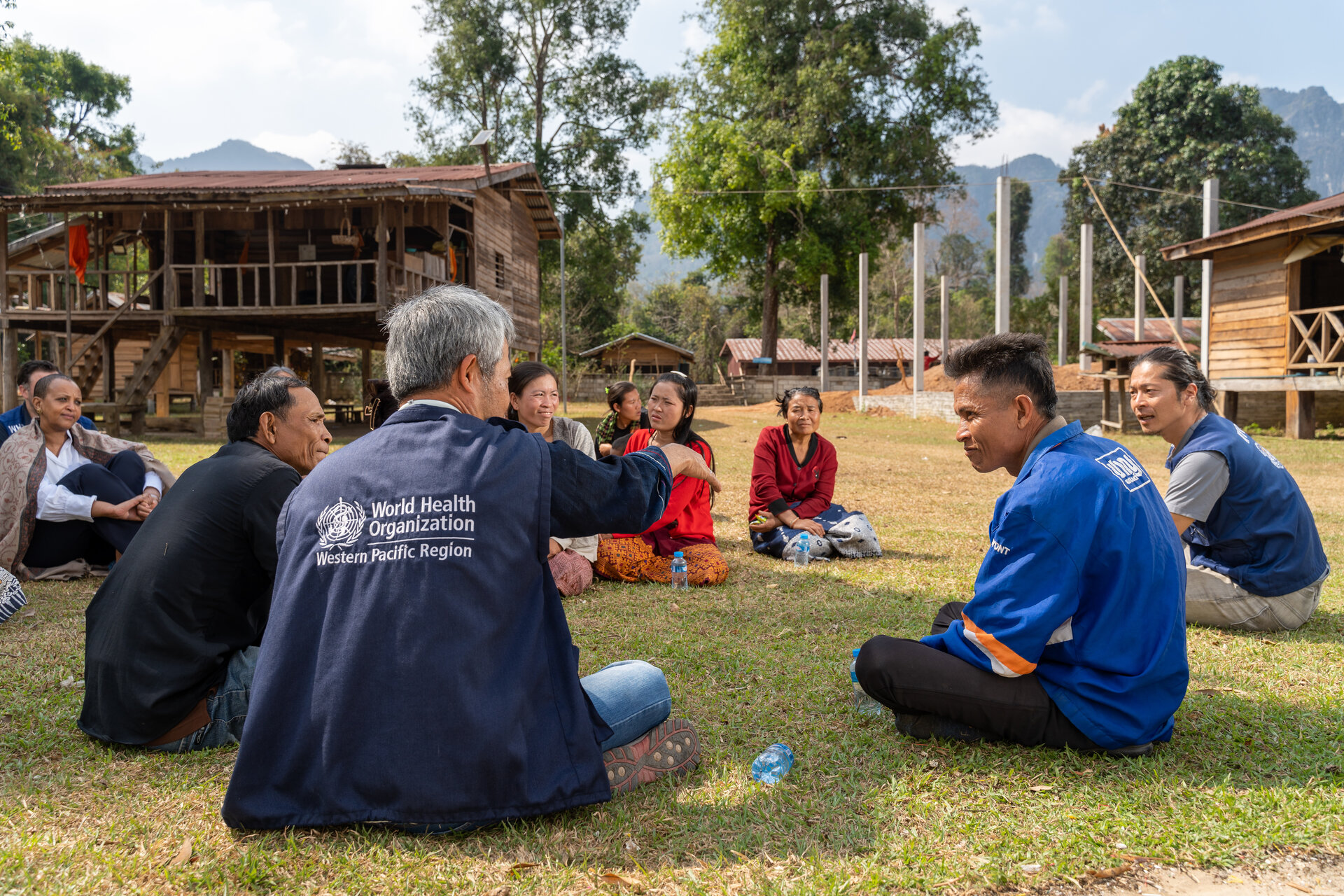 CONNECT team members discuss community health priorities in Khammouane Province, Lao PDR. Photo by: WHO/Enric Catala
CONNECT team members discuss community health priorities in Khammouane Province, Lao PDR. Photo by: WHO/Enric Catala
Developed by the Lao Ministry of Health and Ministry of Home Affairs in response to COVID-19 with the support of WHO and partners, the CONNECT initiative enhances local governance and community engagement for equitable access to public services, particularly health.
Supported by USAID, the Australian Government and Luxembourg, as of July 2024, CONNECT reached over 230 villages across 10 provinces (including Vientiane Capital) and support already in-place for expansion to all provinces.
An external evaluation of implementation in 12 villages found an increase in essential service uptake for maternal health and improved attitudes towards using primary care; increased trust in health providers; increased sense of ownership of health at community level; and increased vaccination uptake and confidence, especially among ethnic groups and previously unreached communities.
Visit the WHO/WPRO web page to read the full story.
Côte d'Ivoire community radios boost public awareness on mpox outbreak
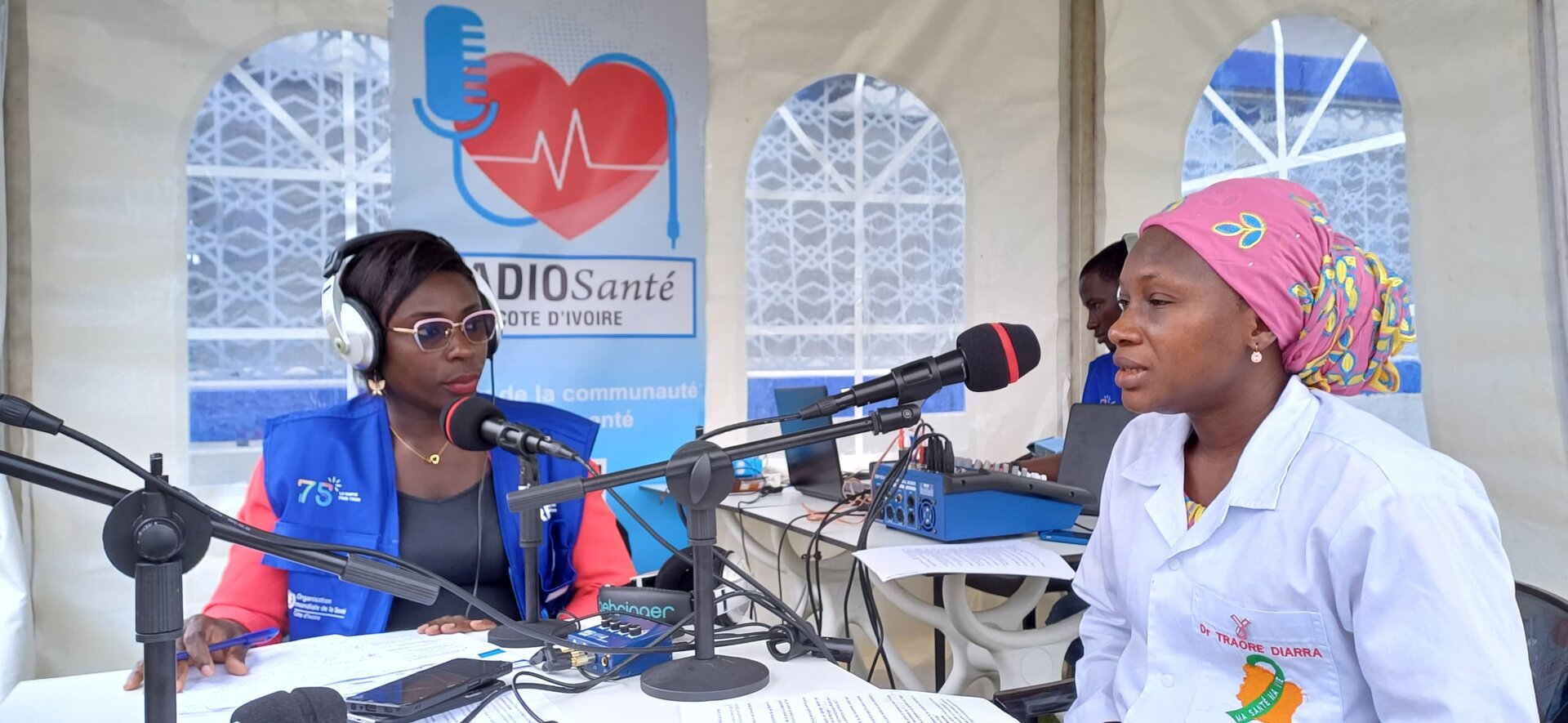 Community radios, pillar of the fight against mpox. Photo by: WHO/Toiherou De Marfere Sidibe
Community radios, pillar of the fight against mpox. Photo by: WHO/Toiherou De Marfere Sidibe
A network of community radio stations, known as Radio Santé, comprises 350 stations in West African, with over half based in Côte d'Ivoire. Launched in 2020 during the COVID-19 pandemic with major support from WHO, Radio Santé has become a preferred channel for disseminating reliable, verified health information. It brings together nearly 1000 journalists and communications specialists.
Radio Santé is an interactive and accessible tool for mobilizing communities around health issues, throughout Côte d'Ivoire and across borders. Health authorities use Radio Santé to counter rumours and misinformation, and to strengthen community engagement, which is crucial to curbing the spread of diseases such as mpox.
After WHO declared mpox as a public health emergency of international concern in August 2024, Radio Santé devoted its health talk show to mpox. 185 Ivorian community radio stations have since broadcasted messages on mpox. Over 50 programmes have been produced and broadcast in eight countries: Benin, Burkina Faso, Chad, Guinea, Mali, Niger, Senegal and Togo.
Visit the WHO/Côte d'Ivoire web page to read the full story.
Bolivia strengthens social participation in health for indigenous population
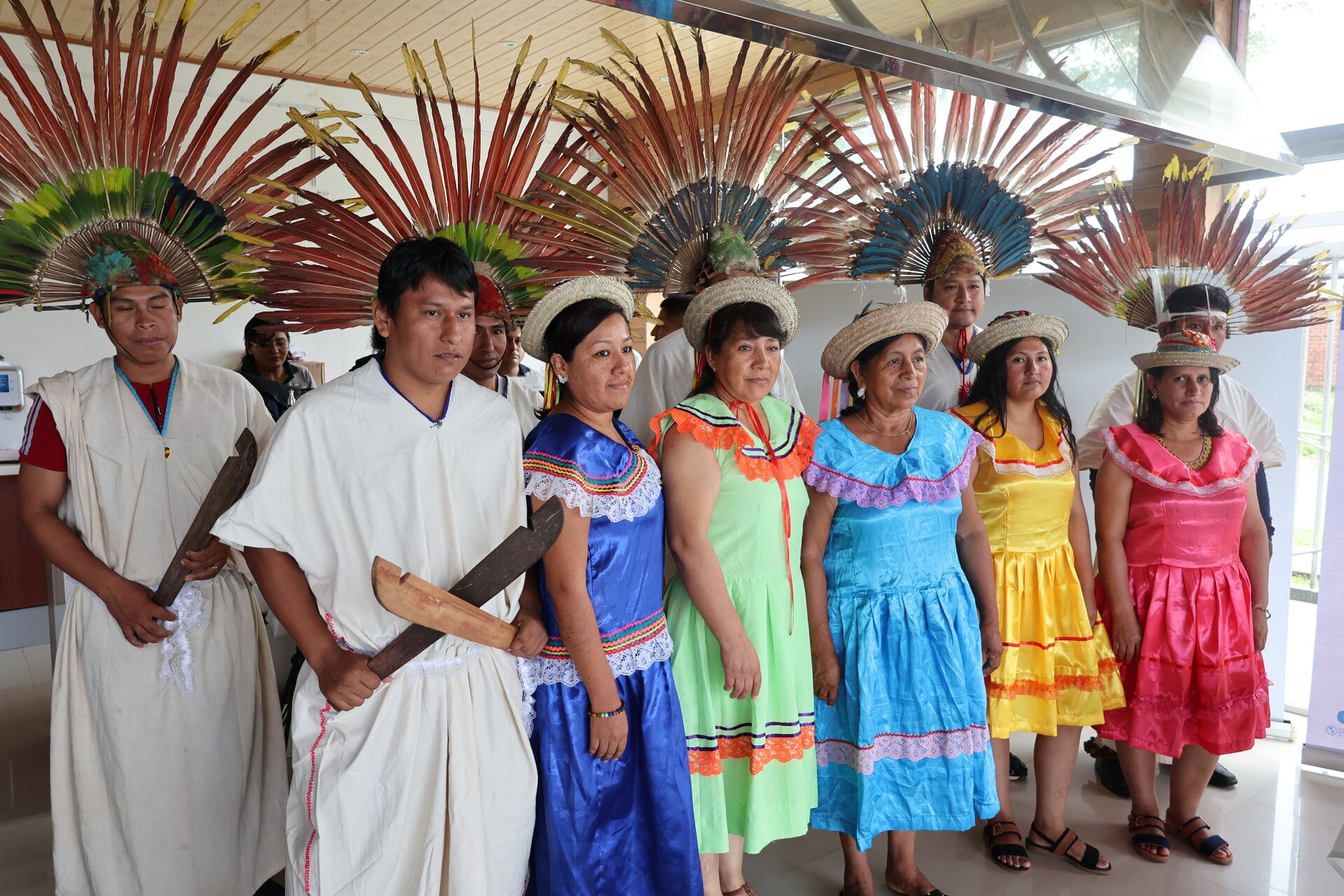 Indigenous organizations are clear about their requests. They want free and equitable access to health care, an improved indigenous health network, incorporation of traditional medicine, and the consideration of the indigenous population’s culture, customs, and practices. Photo by: WHO/PAHO
Indigenous organizations are clear about their requests. They want free and equitable access to health care, an improved indigenous health network, incorporation of traditional medicine, and the consideration of the indigenous population’s culture, customs, and practices. Photo by: WHO/PAHO
The Ministry of Health and Sports of Bolivia is engaging indigenous populations in community participation processes, creating space for them to discuss health topics, share concerns, and contribute to a health improvement plan.
The meaningful inclusion and engagement of indigenous populations in health policy planning, taking into account the social determinants of health, is critical to ensure context-specific interventions, uptake of guidance and services, and positive health outcomes for all.
PAHO/WHO, through the Universal Health Coverage Partnership, has supported the Ministry of Health and Sports of Bolivia in this endeavour since 2021. The UHC Partnership operates in over 125 countries, representing over 3 billion people. It is supported and funded by Belgium, Canada, the European Union, France, Germany, Ireland, Luxembourg, Japan, the United Kingdom of Great Britain and Northern Ireland, and WHO
Visit the PAHO/AMRO web page to read the full story.
Weaving hope in Honduras: the community wisdom that saves lives
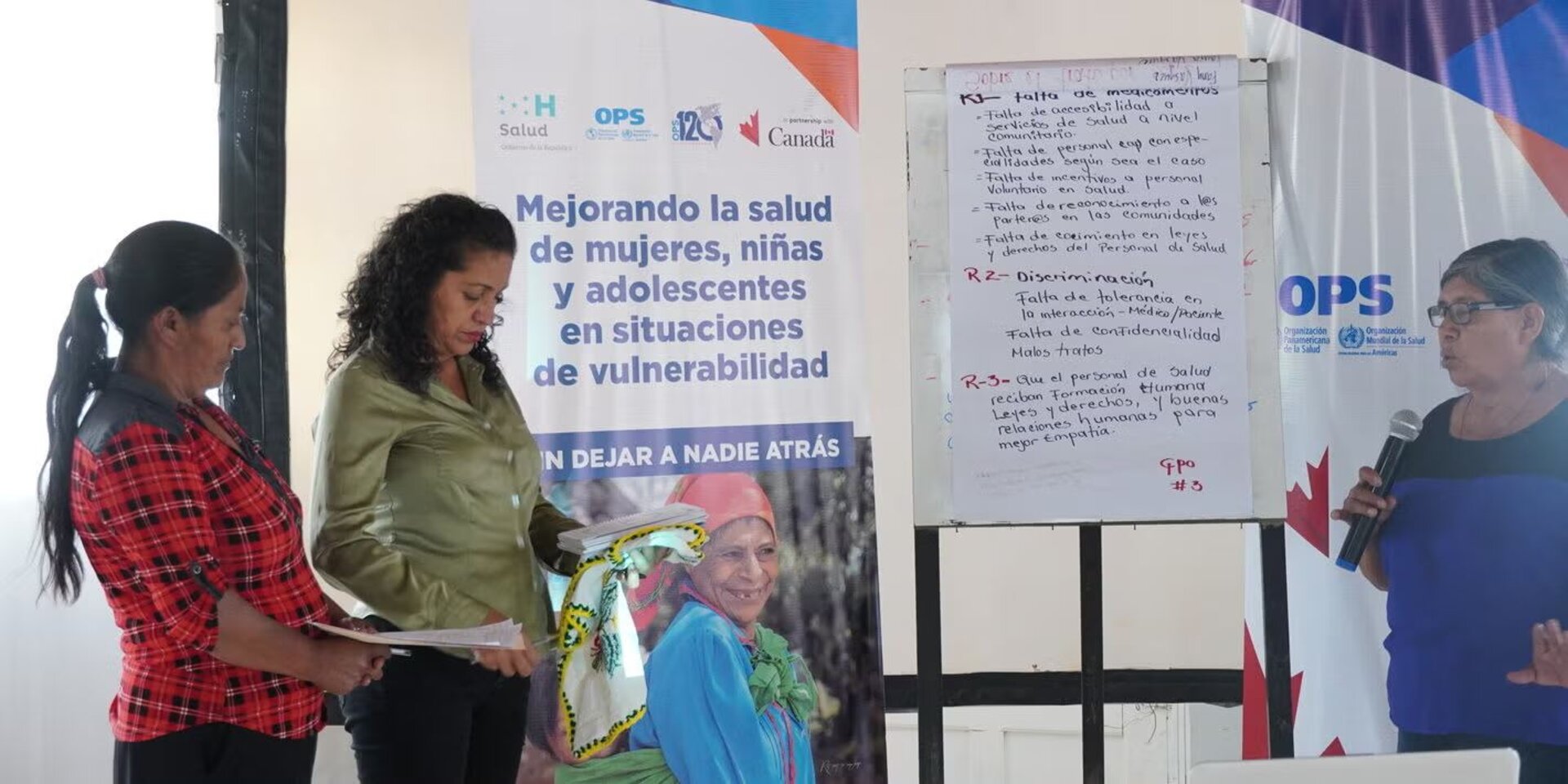 Maternal health in Honduras Hermelinda shares her experience. Photo by: WHO/Honduras
Maternal health in Honduras Hermelinda shares her experience. Photo by: WHO/Honduras
In Honduras, high rates of maternal and neonatal mortality are often the result of multiple factors, including socioeconomic barriers, lack of access to adequate healthcare services, gaps in education and awareness about maternal and child health, and cultural differences.
Hermelinda Hernández, who is familiar with the local practices and beliefs of her community and also recognizes the value of professional medical interventions, participated in the "Knowledge Dialogues Methodology" workshop organized by the Honduran Ministry of Health with the support of PAHO/WHO and funded by Global Affairs Canada.
The workshop aimed to promote mutual understanding between midwives and healthcare providers to reach agreements that improve the health of women, and adolescent girls in situations of vulnerability within the community.
Visit the PAHO/AMRO web page to read the full story.
Grassroots heroes in Cambodia
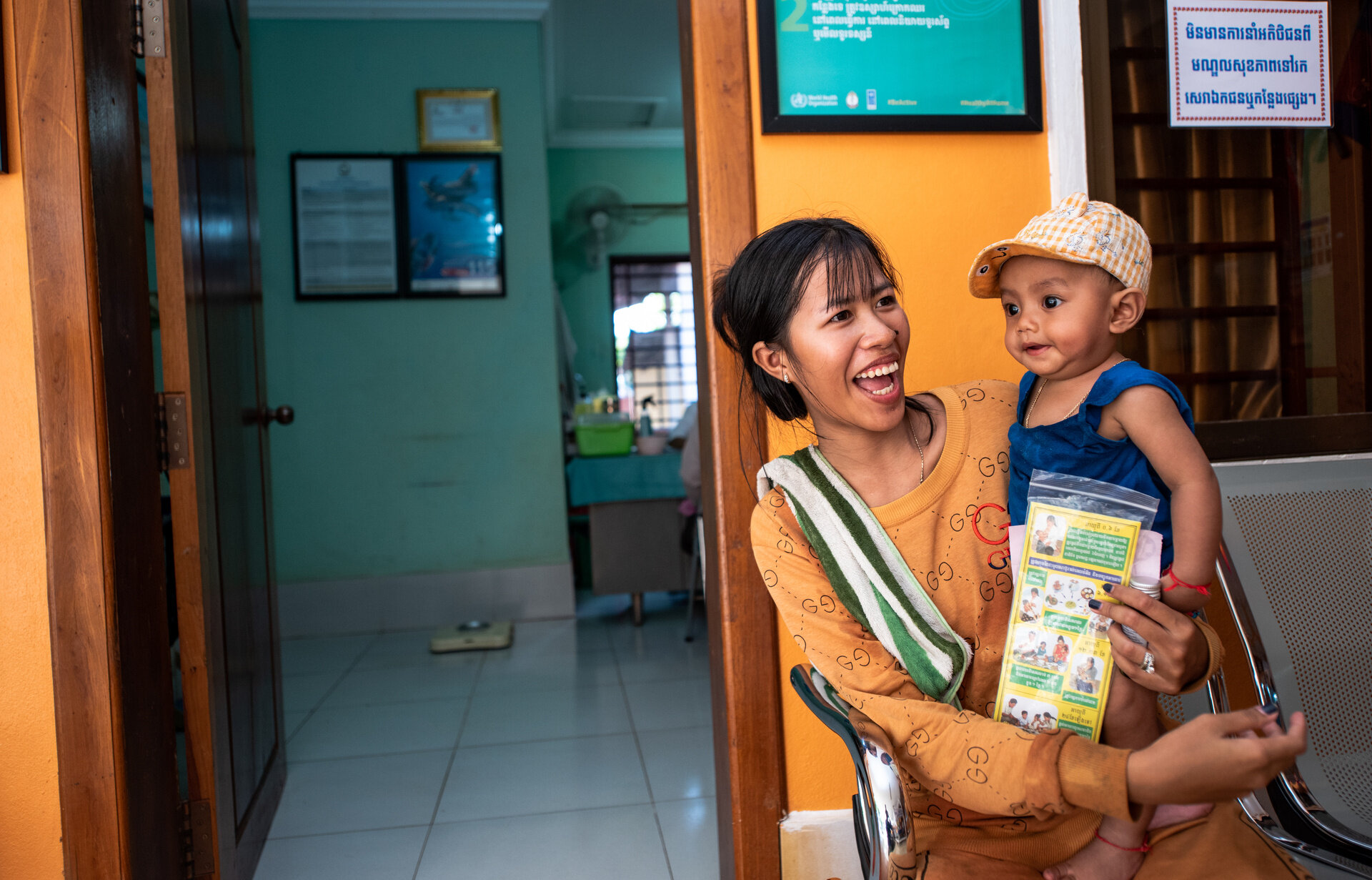 Mrs Say Sa with her Baby in Cambodia's Principal of Health Centre Kok Chuk. Photo by: Aforative media
Mrs Say Sa with her Baby in Cambodia's Principal of Health Centre Kok Chuk. Photo by: Aforative media
In Cambodia, village chiefs stepped up to create a healthier future for their communities. In villages across 25 provinces, 2000 village chiefs and nearly 5400 village health support groups received trainings, organised by the Ministry of Heath with support from WHO and the EU.
This equipped the chiefs with knowledge and skills necessary to control transmission of COVID-19, influenza, and other respiratory diseases, and collaborate with authorities more closely on health issues facing their communities.
The chiefs then shared their newfound knowledge during community dialogues, which then transformed how community members adopted healthier practices. Empowered with accurate information, communities embraced protective measures during times of high COVID-19 transmission.
Visit the WHO/WPRO web page to read the full story, and more on EU's support to WHO in ASEAN region.
Bolstering public awareness to help curb mpox spread in Uganda
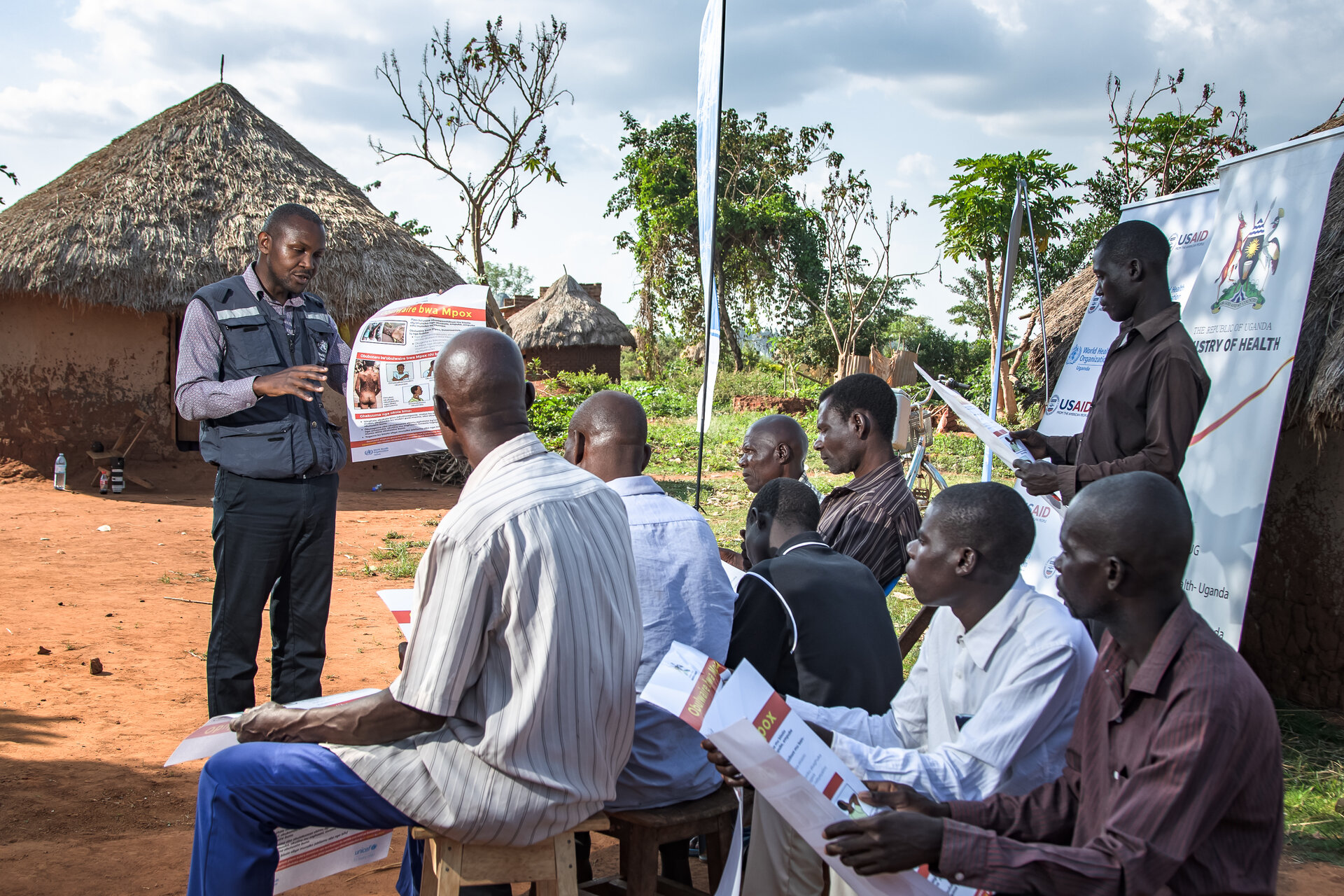 Dr Kenneth Kabali, WHO Field Coordinator for Busoga Sub-region sensitizes the community on mpox in Mayuge district, Eastern Uganda. Photo by: WHO/Abdu Mutwalibu Seguya
Dr Kenneth Kabali, WHO Field Coordinator for Busoga Sub-region sensitizes the community on mpox in Mayuge district, Eastern Uganda. Photo by: WHO/Abdu Mutwalibu Seguya
The risk communication and community engagement team reached more than 100 fishmongers, fisherfolk, boda boda (motorbike taxi) riders, 8000 school children and 30 sex workers. In addition, 500 teachers in the district have been oriented on mpox.
WHO is also using mass media to expand the reach of mpox response communication. With funding from USAID, WHO has contracted 10 regional radio stations and 2 national TV stations to raise awareness and promote preventative behaviour.
Visit the WHO/AFRO web page to read the full story.
Combating measles: a comprehensive community-centred approach in Ethiopia
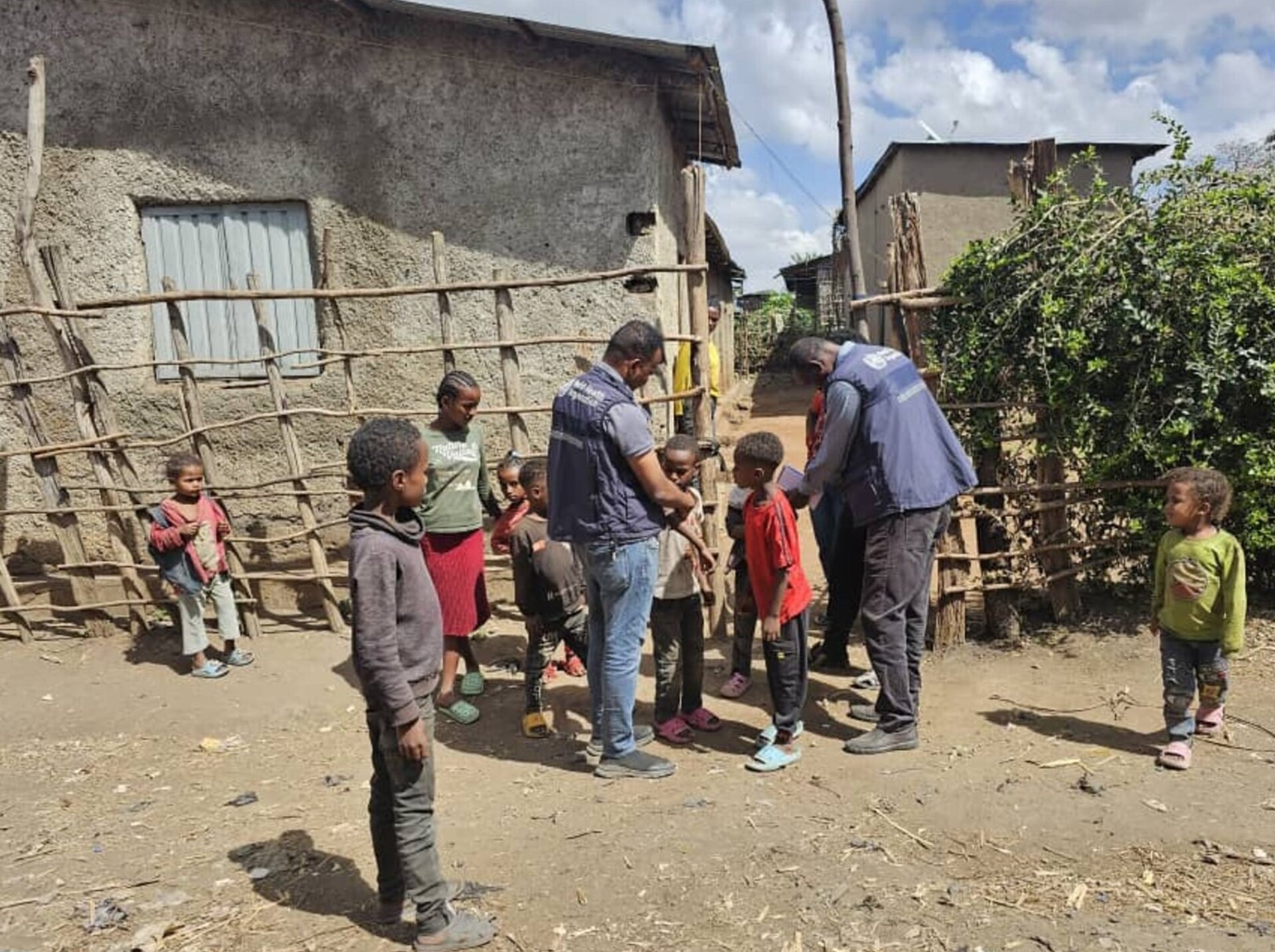 Combating measles, a comprehensive community-centred approach in Ethiopia. Photo by: WHO/Hassen Ali
Combating measles, a comprehensive community-centred approach in Ethiopia. Photo by: WHO/Hassen Ali
In the districts of Sidama, Central, and South Ethiopia, access to healthcare is often challenging, exacerbated by various health emergencies. A community-led initiative made remarkable progress in combating measles, malaria, and malnutrition through collaborative efforts between local health facilities, community health workers, and government agencies.
The initiative received significant financial support from the European Civil Protection and Humanitarian Aid Operations (ECHO) bolstering community-based intervention efforts.
By leveraging collaboration between healthcare facilities, community health workers, and local communities, this initiative represents a beacon of hope in improving healthcare access and outcomes in regions of Ethiopia.
Visit the WHO/Ethiopia web page to read the full story.
WHO races to contain malaria resurgence in southeastern Iran
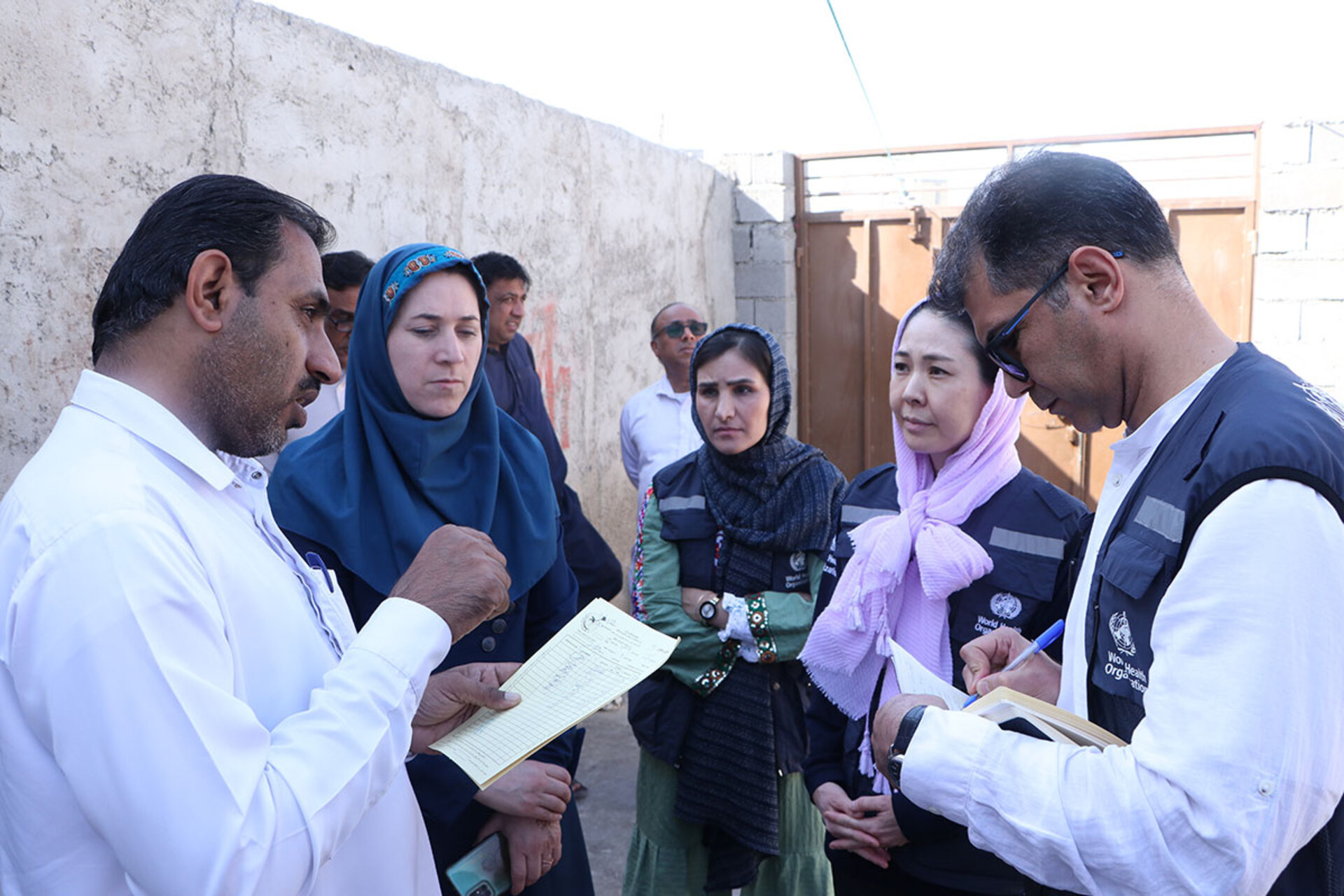 Malaria resurgence in Iran. Photo by: WHO/Iran
Malaria resurgence in Iran. Photo by: WHO/Iran
A race against time is underway in southeastern Iran, where the resurgence of malaria threatens to undo years of progress. The dramatic rise in cases has been attributed to the devastating floods in neighbouring Pakistan in September 2022 which led to an expansion of malaria breeding sites.
WHO, with crucial support from the Government of Japan, is on the ground in Sistan and Baluchestan Province, battling this public health emergency and working to protect vulnerable communities. Japan’s generous contribution provided 4902 mosquito dome tents offering families protection from infected mosquitos, 50 000 malaria rapid diagnostic tests enabling health care workers to quickly identify and treat infected individuals, and 1655 kg of insecticides, deployed to contain mosquito populations at their source. The combined resources are estimated to benefit 77 400 people in the province.
In December 2024, a WHO mission observed a proactive approach to malaria control demonstrated by local health workers as they conducted house-to-house screenings, distributed mosquito nets and educated communities on how to use them.
Visit the WHO/Iran web page to read the full story.
Mali: screening for malnutrition in affected children to avoid complications
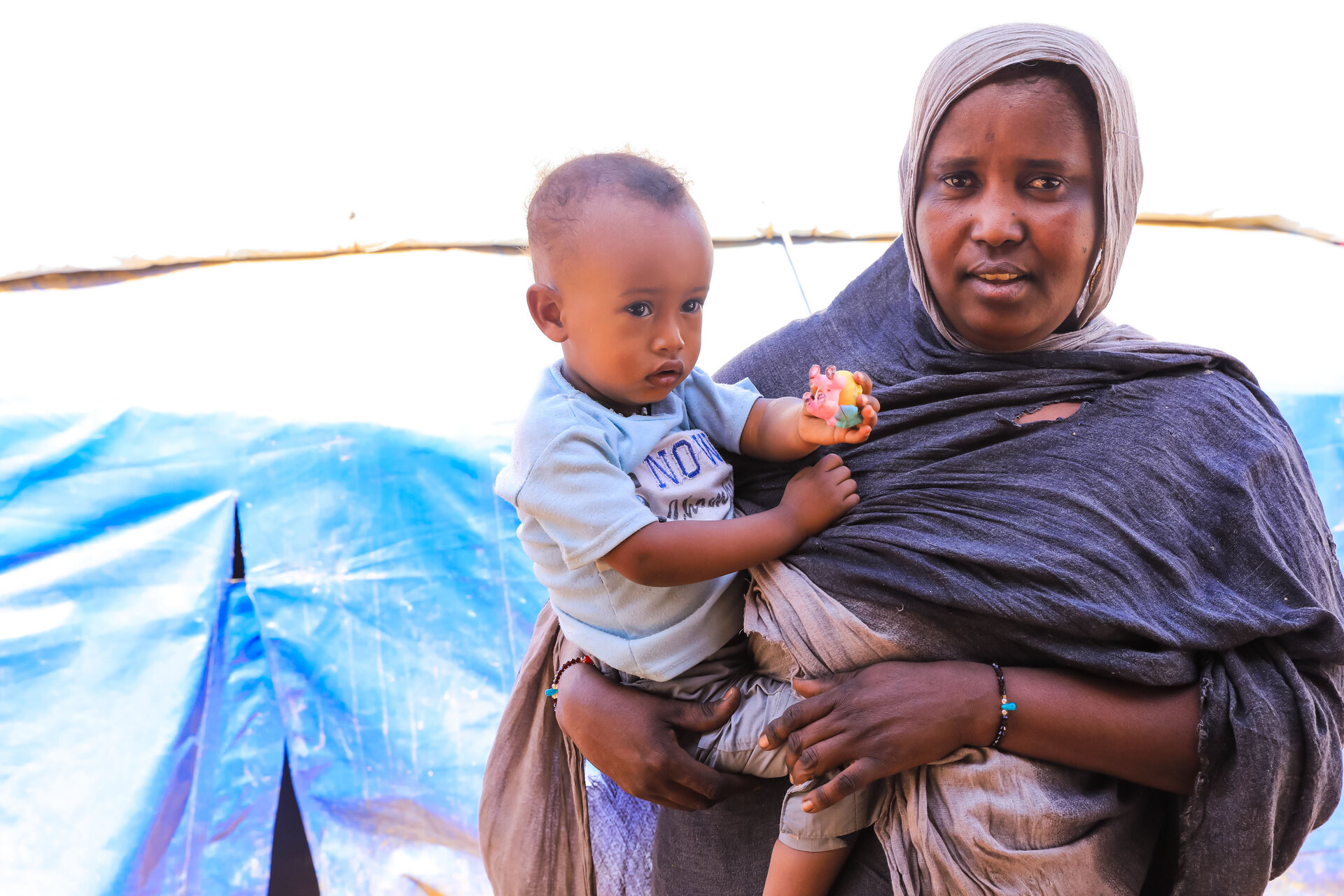 Screening for malnutrition in affected children to avoid complications, Mali. Photo by: WHO/Razzack Saizonou
Screening for malnutrition in affected children to avoid complications, Mali. Photo by: WHO/Razzack Saizonou
Malnutrition among children is one of the main health problems that the affected populations of Ségou had to face after severe floods hit Mali between July and October 2024. Having lost everything including their food reserves and their means of subsistence, people found themselves in a very precarious situation.
Among the more than 370,000 people affected by these floods, children, who represent 45% of the affected population, are particularly vulnerable. To enable access to health care, WHO, with thanks to the Central Emergency Response Fund, supported the deployment of mobile clinics on relocation sites.
In the Ségou region, three sites were set up and equipped with medical tents. Medical staff go there five times a month. Between July and October 2024, nearly 700 children suffering from malnutrition were identified in the three health districts of the Ségou region.
Visit the WHO/Mali web page to read the full story in French.
Effective community engagement saving lives in Tanzania during cholera outbreak
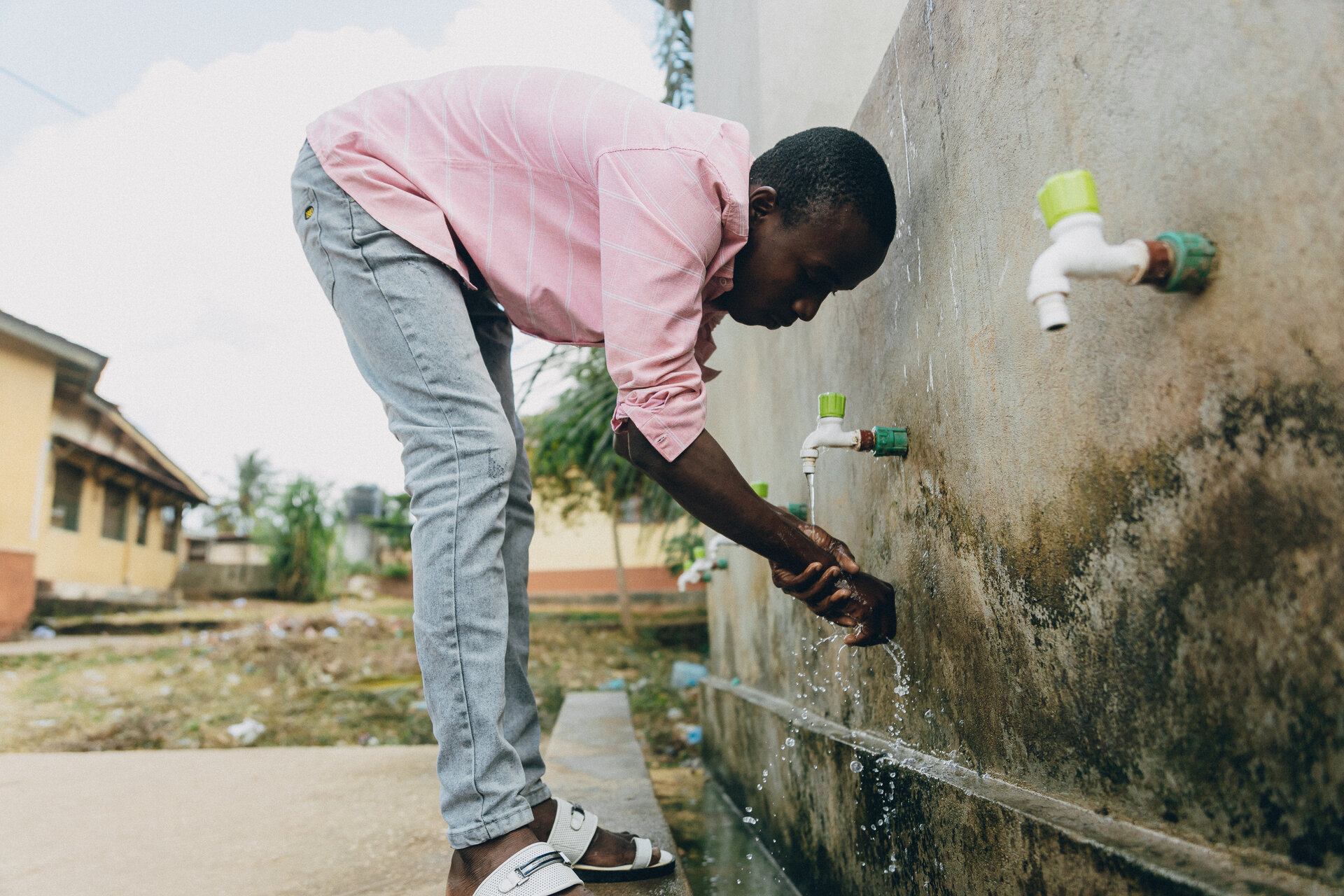 Abdul Zachari, a young man is washing his hands. Photo by: WHO/Clemence Eliah
Abdul Zachari, a young man is washing his hands. Photo by: WHO/Clemence Eliah
The recurrence of Cholera outbreaks has been a threat to many lives in the United Republic of Tanzania for decades now. In mid-2024, situation reports from the Ministry of Health indicated that, the outbreak have been reported in 19 regions of Tanzania Mainland. Thanks to flexible funding available for responding to outbreaks such as this, WHO has been able to support the Government’s efforts to control cholera outbreaks. Risk Communications and Community Engagement (RCCE) Experts worked on the ground delivering an intensive community sensitization in over 92 households and 32 villages . The joint and community-based action plan against Cholera outbreak was built jointly, this way enhancing 54 community members and local authorities from the affected wards and districts. The community engagement strategies adopted generate local solutions tailored to control and prevent further transmissions in these areas. In addition, WHO applied behavioral science approaches to guide tailored interventions to community protection and resilience – and as a result, enhancing many lives in Tanzania.
Visit the WHO/Tanzania web page to read the full story.
* * * *
Read more about the WHO’s community engagement work.
The donors and partners acknowledged in this story are (in alphabetical order) Australia, Belgium, Canada, the European Union (ECHO), France, Germany, Ireland, Luxembourg, Japan, the United Kingdom of Great Britain and Northern Ireland, United Nations Central Emergency Response Fund, and the USA Agency for International Development.
WHO’s work is made possible through all contributions of our Member States and partners. WHO thanks all donor countries, governments, organizations and individuals who are contributing to the Organization’s work, with special appreciation for those who provide fully flexible contributions to maintain a strong, independent WHO.
